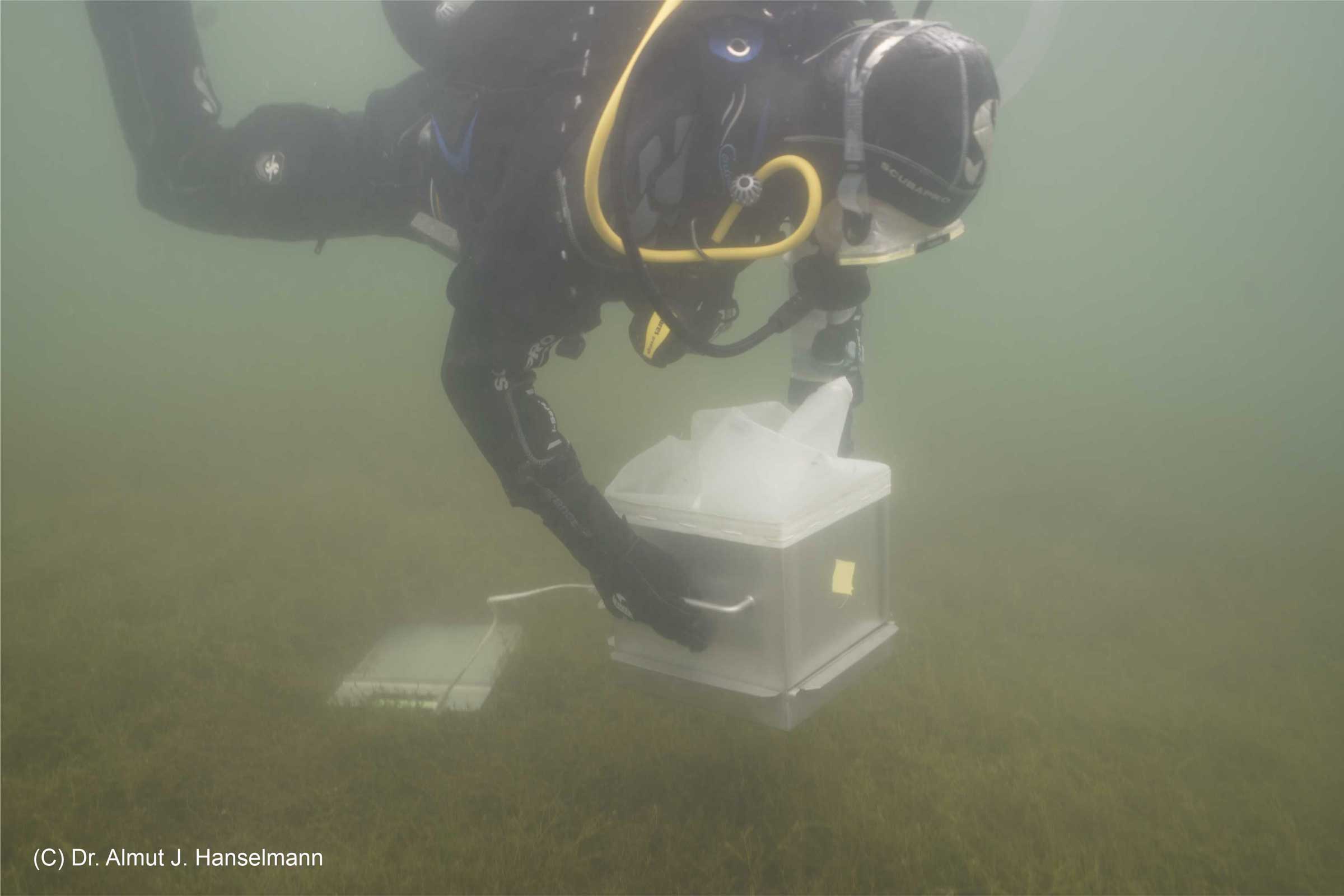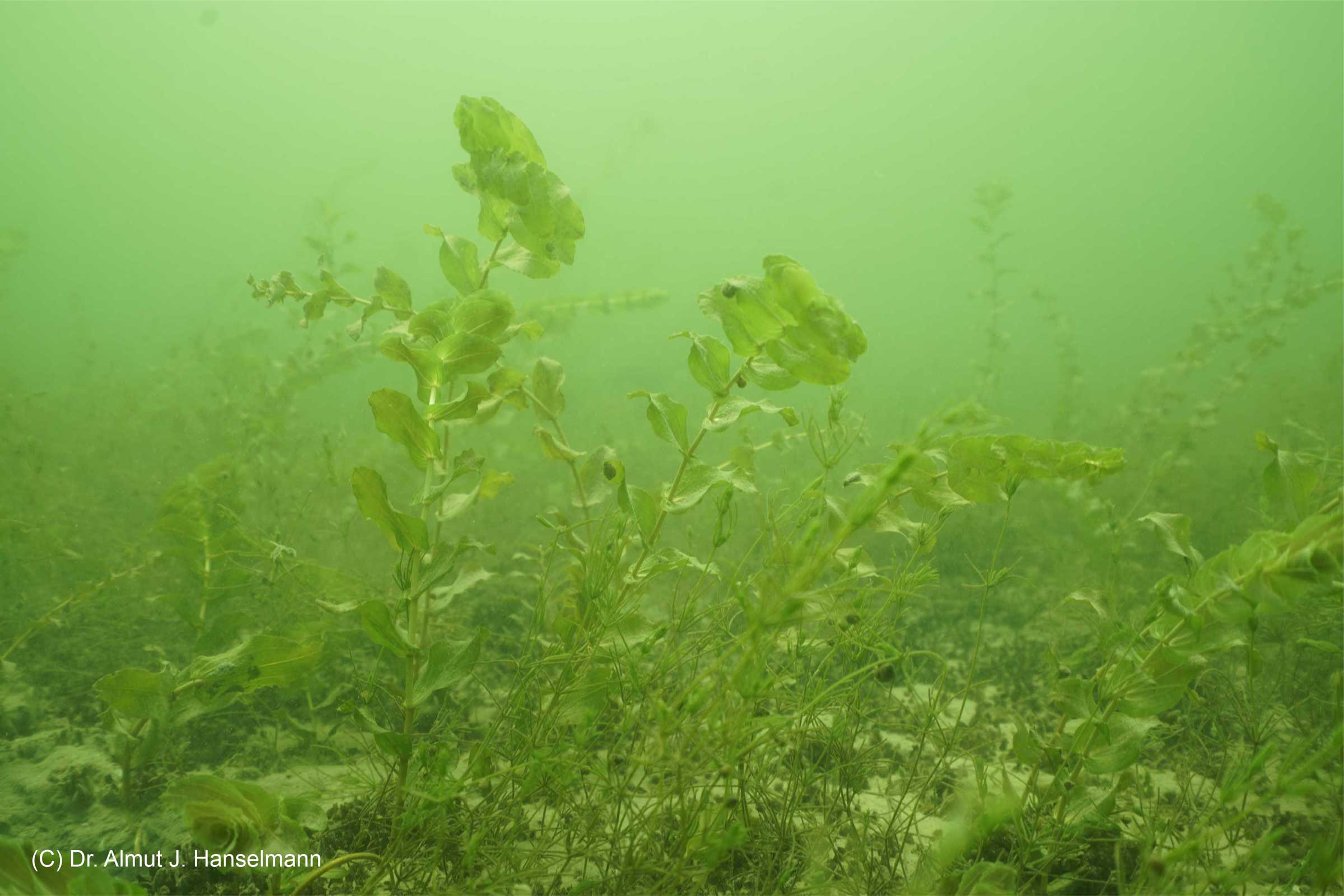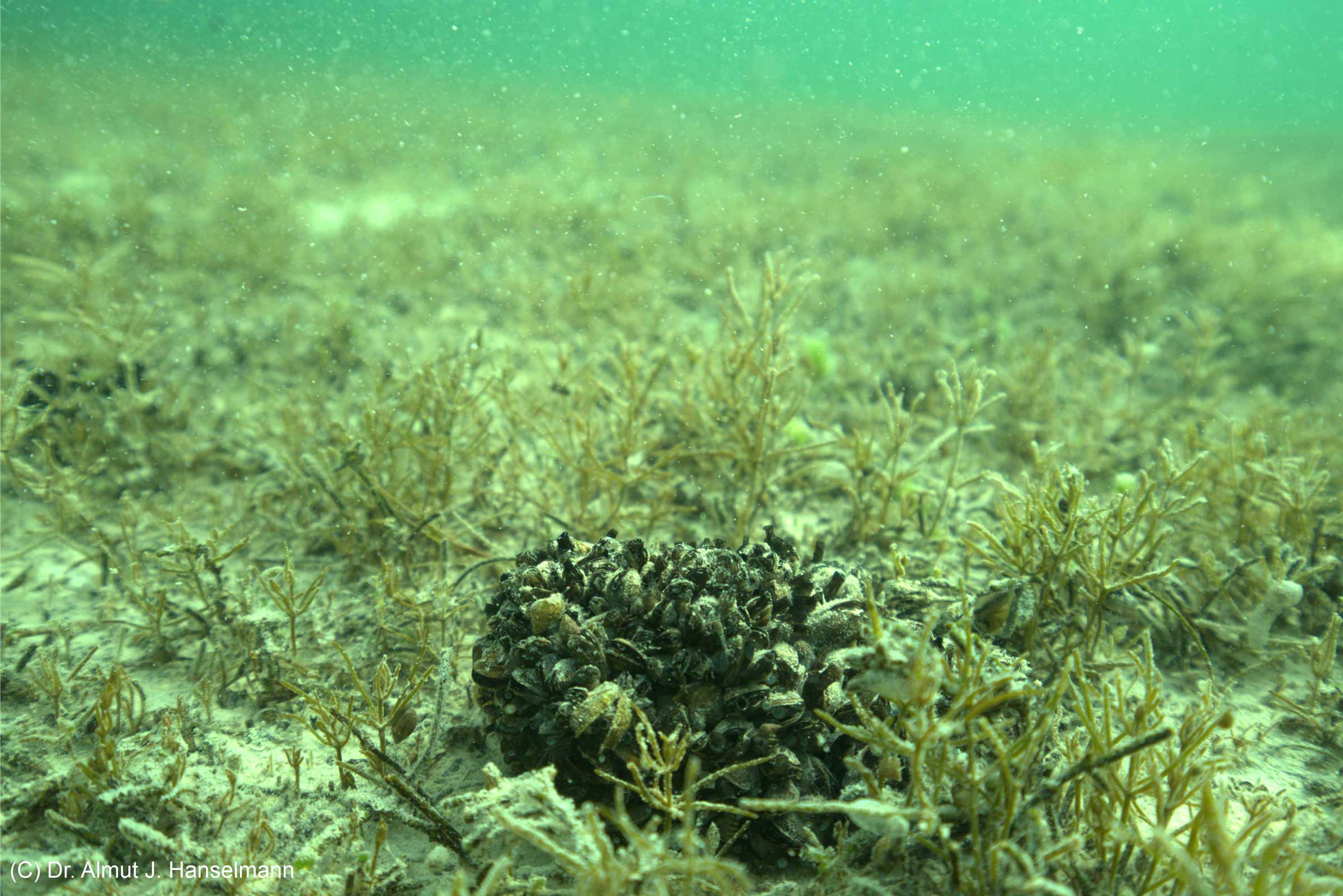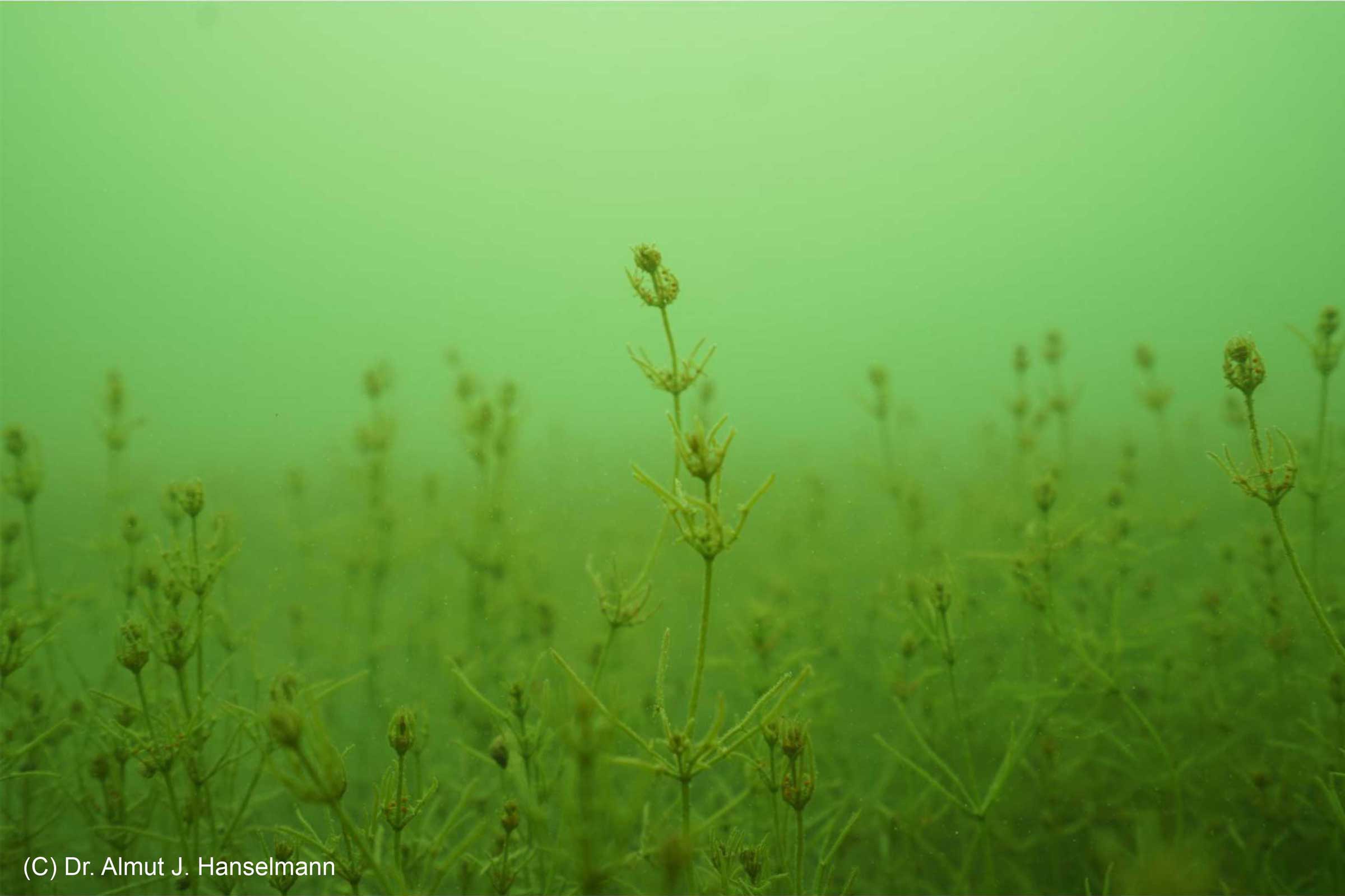Climate impact assessment for the shallow water biocoenoses of Lake Constance
Research approach
During climate change and the associated changes such as temperature and water levels, the distribution of submerged macrophytes in Lake Constance is also changing. Characeae in particular have been spreading more and more in the lake for years, presumably also as a result of reoligotrophication. In addition, there are increasing sightings of vital stonewort (Characeae) in winter.
Macrophytes are therefore becoming increasingly important for the littoral ecosystem, as they are a habitat, refuge and food source for many organisms.
Key questions
How does the Chara biomass change within a whole year, especially in winter?
Are there seasonal differences in the interactions and distributions of benthic invertebrates on macrophytes?
Do Neozoa, especially Dreissena rostriformis bugensis, suffer or benefit from living on Chara?
Objectives
The macrophytes and the associated macrozoobenthos community are being sampled and quantified at different times of the year at various locations with different local nutrient loads in Lake Constance with the help of divers. We use a metal frame for standardized samples. Special attention is also paid to the interaction between macrophytes and neozoa, as these could influence each other in different ways. Neozoa have greatly changed the species community in recent years, and the newly immigrated species also show a dominance in the first samples. In addition, we take a closer look at the spatial distribution of Dreissenid mussels.
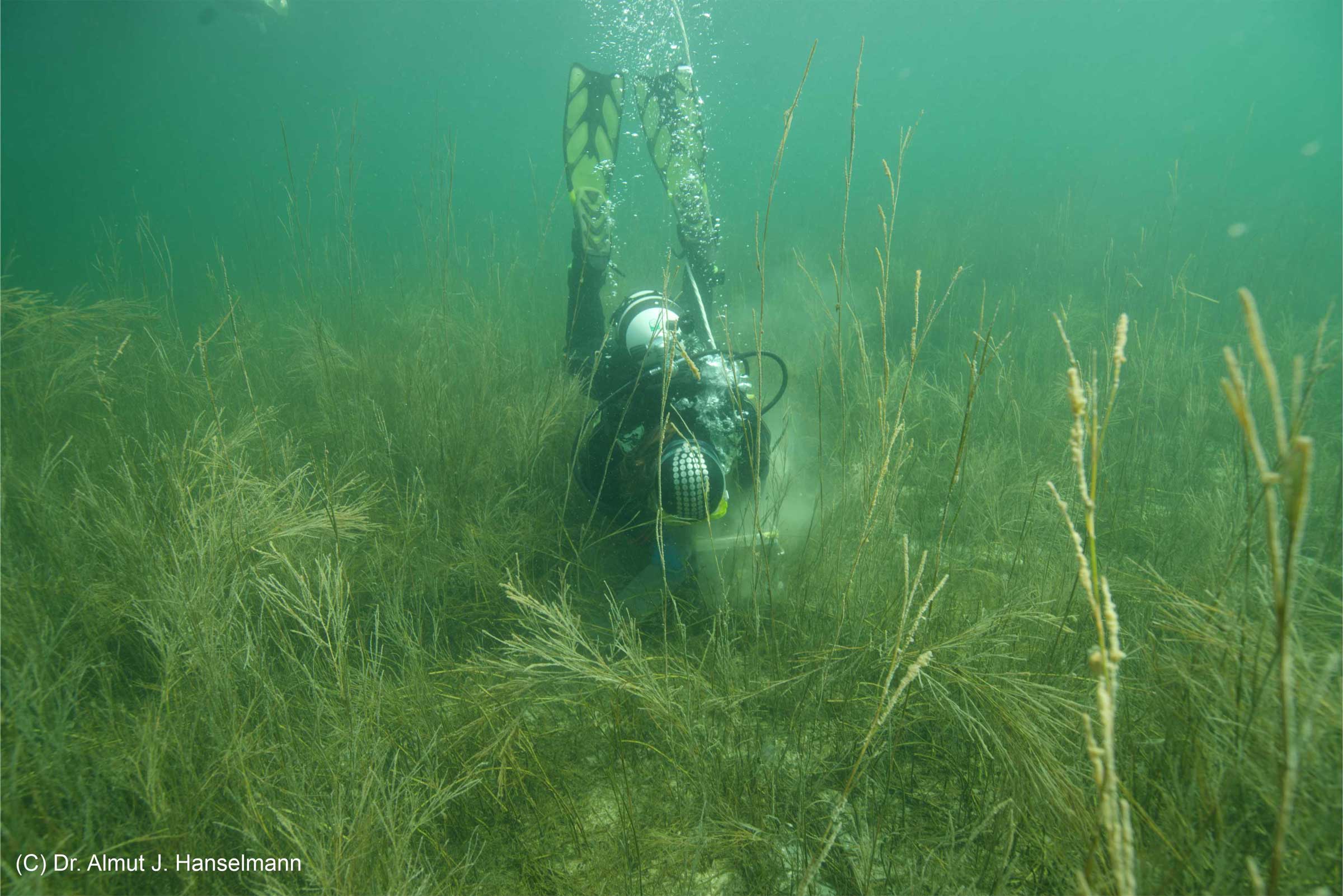
Diver sampling in large Potamogeton helveticus-patch (April 2024).
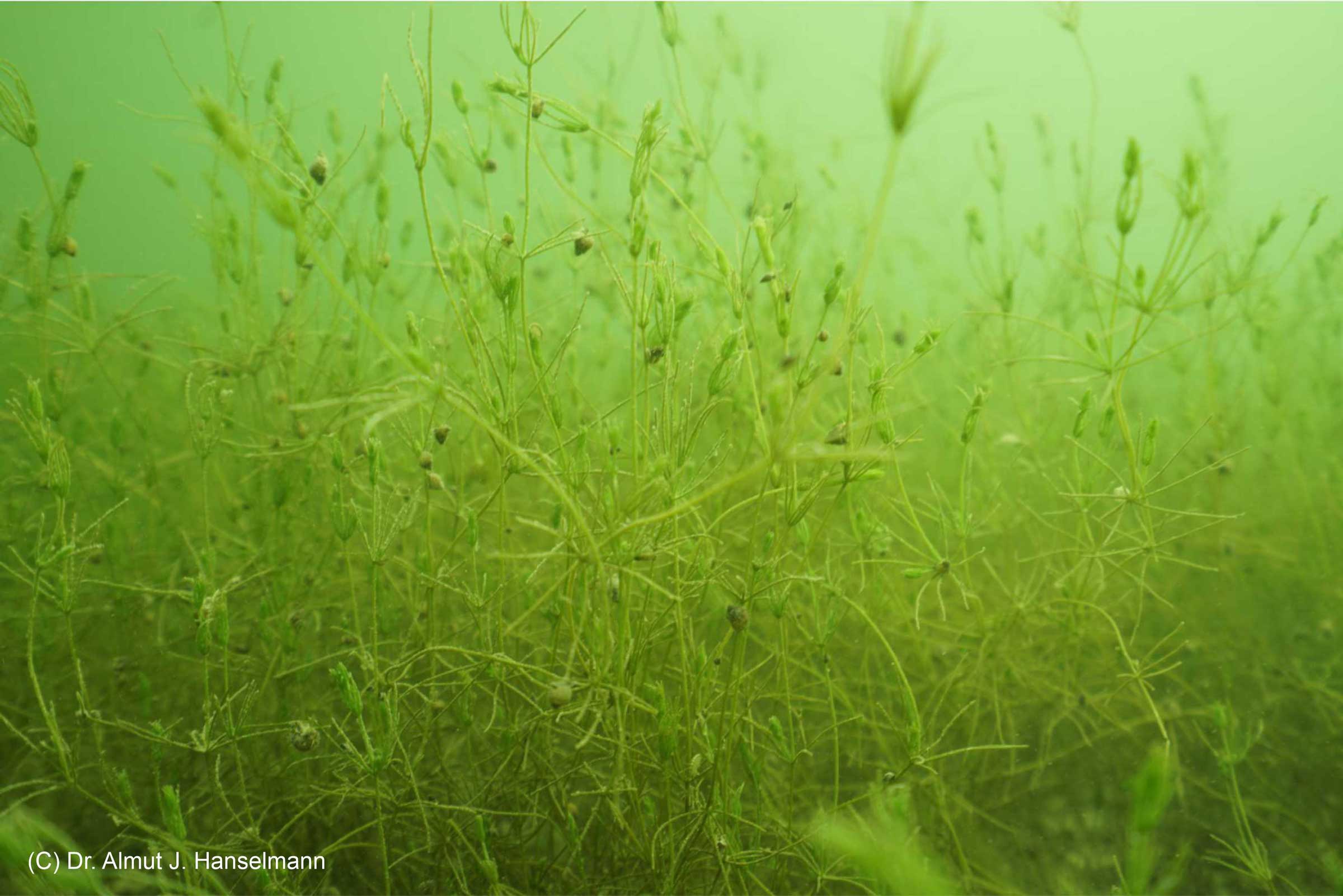
Characea-stand (July 2024).
Cooperation within the SeeWandel-Climate project
Modelling of macrophyte stands (kup, sub-project 5).
Quagga mussel colonisation within macrophyte stands (Eawag, sub-project 6A).
Project team
University of Konstanz, Department of Biology – Limnological Institute, Germany
![]() PD Dr. Dietmar Straile – Project leader
PD Dr. Dietmar Straile – Project leader
![]() Dr. Almut Hanselmann – Scientist
Dr. Almut Hanselmann – Scientist
Associated project partners
State Office for the Preservation of Monuments in the Regional Council of Stuttgart (LAD), Department of Wetland Archaeology, Germany
In collaboration with
Bavarian State Office for the Environment (LfU Bayern), Germany
Macrophyte mapping
